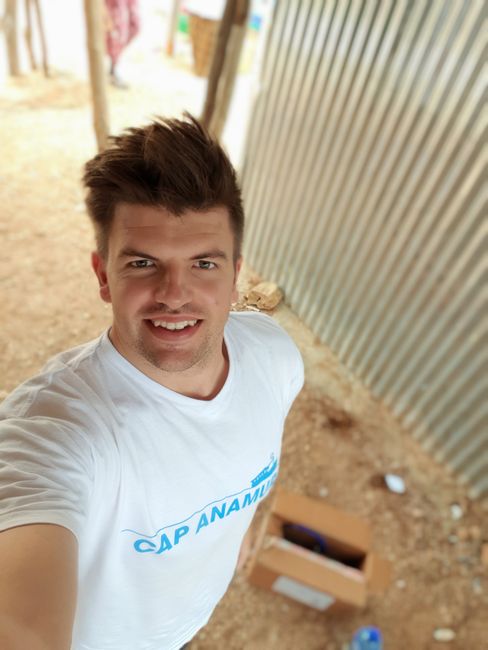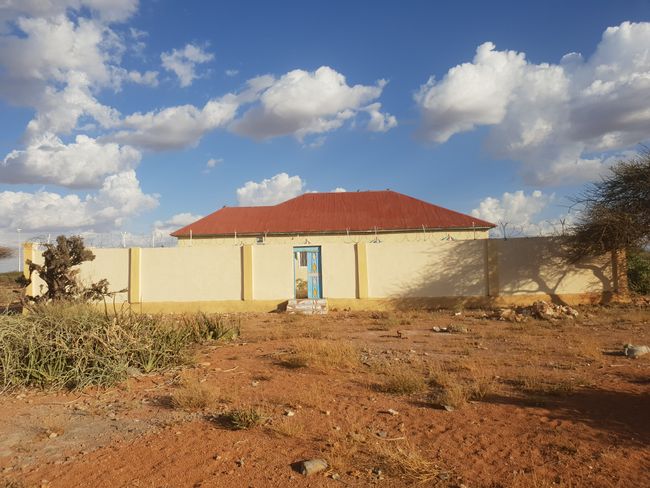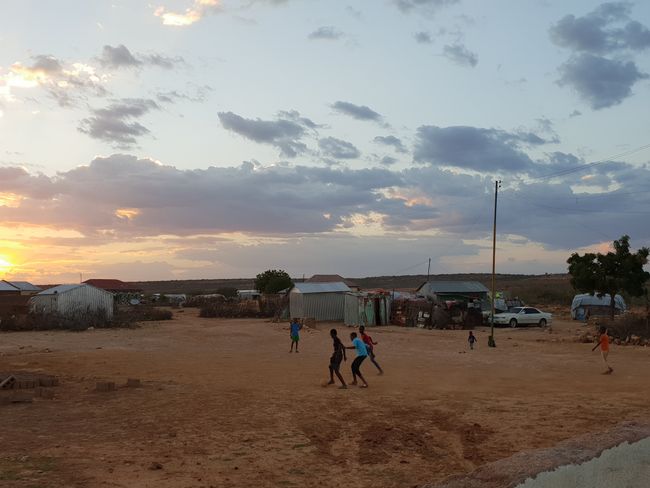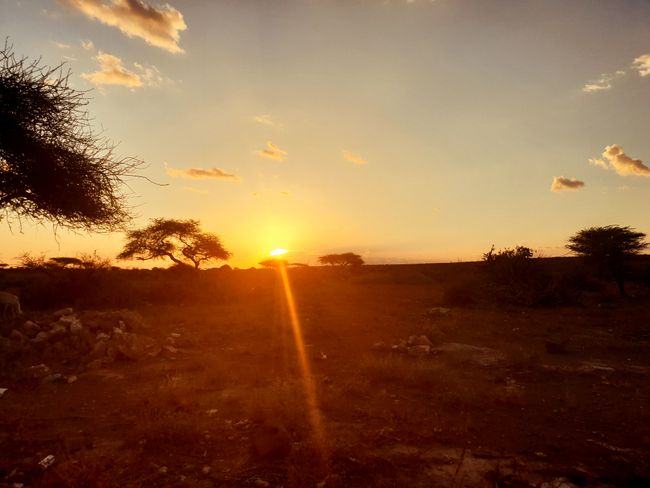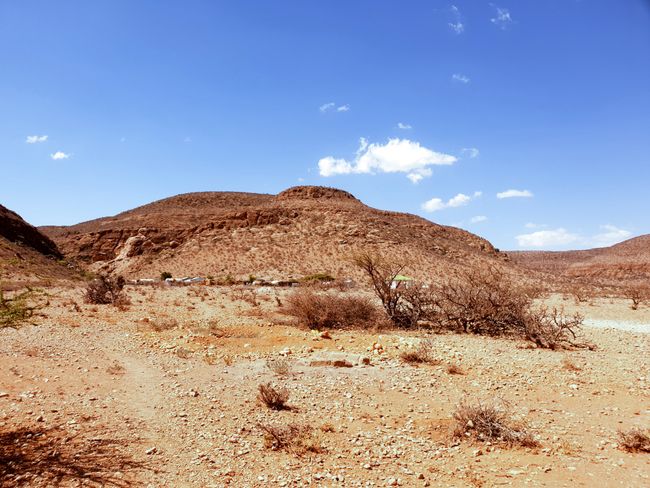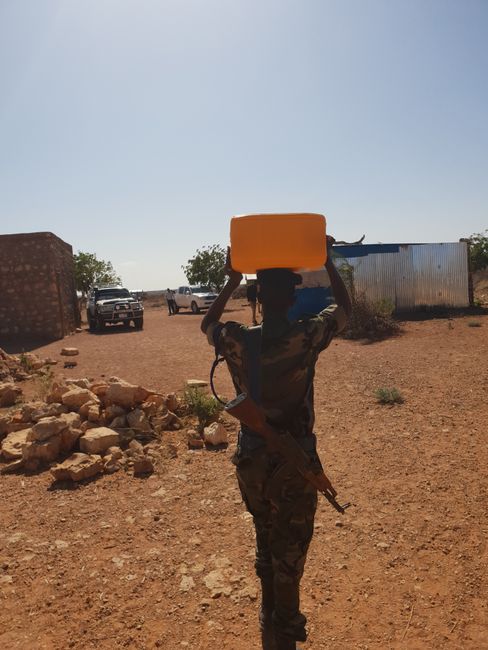Hospital life
Published: 29.09.2018
Subscribe to Newsletter
Today I am reporting from the wild Hargeysa. Seven hours drive for 420km already says a lot about the quality of the roads, if the road is halfway passable, you always have to be careful whether a camel crosses the road from the left or right. Hargeysa is considered the capital of Somaliland and we came here today to say goodbye to one of our team members from the project and to clarify various organizational matters. But more about that another time.
I myself have been in Somaliland for almost three weeks now and a certain routine is starting to develop and tasks are becoming clearer.
So what does my life in Somaliland look like? Together with the other team members, we live in a residential building about 1 kilometer walk from the hospital. The house is surrounded by a 2.50m high wall, rounded off by barbed wire. In addition, there are two armed policemen in front of the house around the clock, who watch over us. Currently, there are two other members in the project besides me, one of whom will leave us tomorrow. Beside me is also our coordinator and project leader in the project and together we work to constantly improve the hospital and our mobile clinic.
But back to my daily routine. My alarm clock rings at 10 to 6 in the morning, then it's off to the cold shower, followed by breakfast; muesli, either with an apple or with a bit of luck a banana. At a quarter to 7, we set off for the hospital in the SUV. We have two drivers available around the clock for trips, and I am also accompanied by a policeman on the journey to the hospital. After arriving at the hospital, the emails are checked first. Is there perhaps any danger message that is relevant to the mobile clinic?! Then I often take a little walk through the hospital.
Have new patients arrived overnight? How many children are in the 'Stabilization Center'? How many oxygen devices are in use? Is the hospital's water dispenser filled?
The morning ward round begins at 7:30 a.m. Together with our doctor, a nurse, and an auxiliary, the different stations are visited one after the other.
After the ward round, a morning meeting takes place. Here, everyone from the doctor to the pharmacist, the caretaker, and the laboratory assistant participates. New and unstable patients are discussed, as well as the hospital's workflow and the weekly planning. We often have things at Cap Anamur that we want to inform the staff about.
After the morning meeting, work begins in the OPD. The OPD is a kind of emergency room and outpatient clinic at the same time. From malnutrition to snake bites to lacerations and abscesses, all patient profiles are found here. Depending on the number of patients, between 35 and 60 patients are treated here in the morning.
After the midday prayer, we return to our residential building. Our housekeeper cooks for us five times a week. The menu varies here between rice, noodles, or beans with goat meat and a sauce made from cabbage, carrots, and onions.
After a long siesta, we return to the hospital around 3:30 p.m. In the afternoons, there are often office tasks, medication management, or other organizational matters. After the evening ward round, we usually return to the residential building around 6 p.m. Before that, we often buy from the trusted 'mom-and-pop store'. The selection here is limited to fresh bread, tomatoes, onions, and tuna, which also serve as our dinner.
After dinner, we often sit together, philosophize about life and the project, and indulge in a date or two.
Otherwise, in Somaliland, you work six days a week. Fridays are always off for religious reasons, which is why I often use the day to write on my blog.
Overall, it is quite good living here, of course, it is different from Germany but not necessarily worse. However, it should also be considered that we have many things taken off here, such as cooking, doing laundry, cleaning, driving, etc., and we do not have to think every day about where to get clean water or walk eight to nine hours to reach the nearest doctor.
Until hopefully soon
#AlexinSomaliland
Subscribe to Newsletter
Answer (2)
Angie
Hallo Alex, Danke dad du deinem Tagesablauf mit uns teilst ( zumindest für unsere Gedanken) . Sehr interessant und ich kann nicht abwarten deinen nächsten Bericht zu lesen! Margreth
Hallo Alex ,mir geht es so wie Angie ,ich freue mich auch immer wenn du dein Leben und dein Tagesablauf mit uns teilst. Machs gut bis zum nächstenmal.
